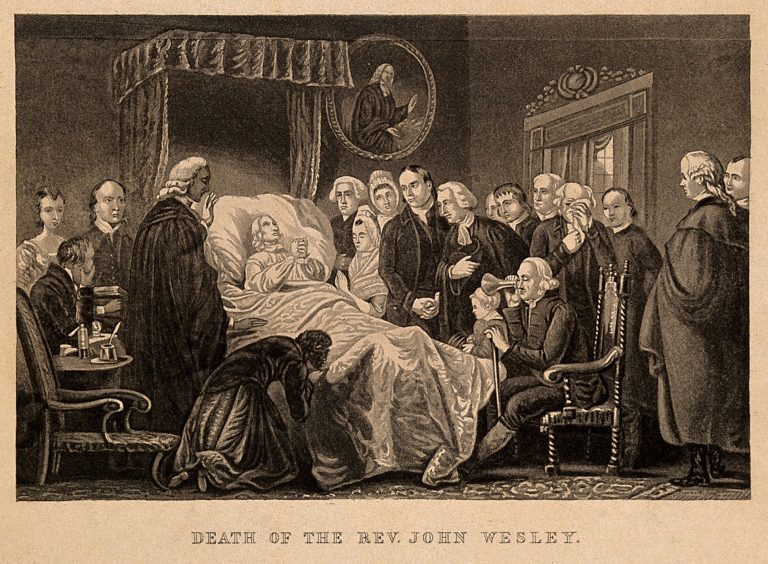John Wesley (; 28 June [O.S. 17 June] 1703 – 2 March 1791) was an English cleric, theologian, and evangelist, who was a leader of a revival commotion within the Church of England known as Methodism. The societies he founded became the dominant form of the independent Methodist action that continues to this day.
Educated at Charterhouse and Christ Church, Oxford, Wesley was elected a fellow of Lincoln College, Oxford, in 1726 and ordained as an Anglican priest two years later. He led the “Holy Club”, a bureau formed for the intention of the scrutiny and the leisure interest of a devout Christian life; it had been founded by his brother Charles and counted George Whitefield in the middle of its members. After an unsuccessful ministry of two years, serving at Christ Church, in the Georgia colony of Savannah, he returned to London and allied a religious activity led by Moravian Christians. On 24 May 1738, he experienced what has take over be called his evangelical conversion, when he felt his “heart strangely warmed”. He taking into consideration left the Moravians and began his own ministry.
A key step in the proceed of Wesley’s ministry was, like Whitefield, to travel and preach outdoors. In contrast to Whitefield’s Calvinism, Wesley embraced Arminian doctrines. Moving across Great Britain and Ireland, he helped form and organise little Christian groups that developed intensive and personal accountability, discipleship, and religious instruction. He appointed itinerant, unordained evangelists – both women and men – to care for these groups of people. Under Wesley’s direction, Methodists became leaders in many social issues of the day, including the abolition of slavery and prison reform.
Although he was not a analytical theologian, Wesley argued for the notion of Christian perfection and adjoining Calvinism—and, in particular, against its doctrine of predestination. His evangelicalism, firmly high and dry in sacramental theology, maintained that means of grace sometimes had a role in sanctification of the believer; however, he taught that it was by faith a advocate was transformed into the empathy of Christ. He held that, in this life, Christians could achieve a give leave to enter where the adore of God “reigned fixed in their hearts”, giving them not unaccompanied outward but inward holiness. Wesley’s teachings, collectively known as Wesleyan theology, continue to notify the doctrine of Methodist churches.
Throughout his life, Wesley remained within the traditional Church of England, insisting that the Methodist interest lay capably within its tradition. In his in the future ministry years, Wesley was barred from preaching in many parish churches and the Methodists were persecuted; he progressive became widely respected, and by the subside of his life, was described as “the best-loved man in England”.
What do you think of the works of John Wesley?
Use the form below to say your opinion about John Wesley. All opinions are welcome!
